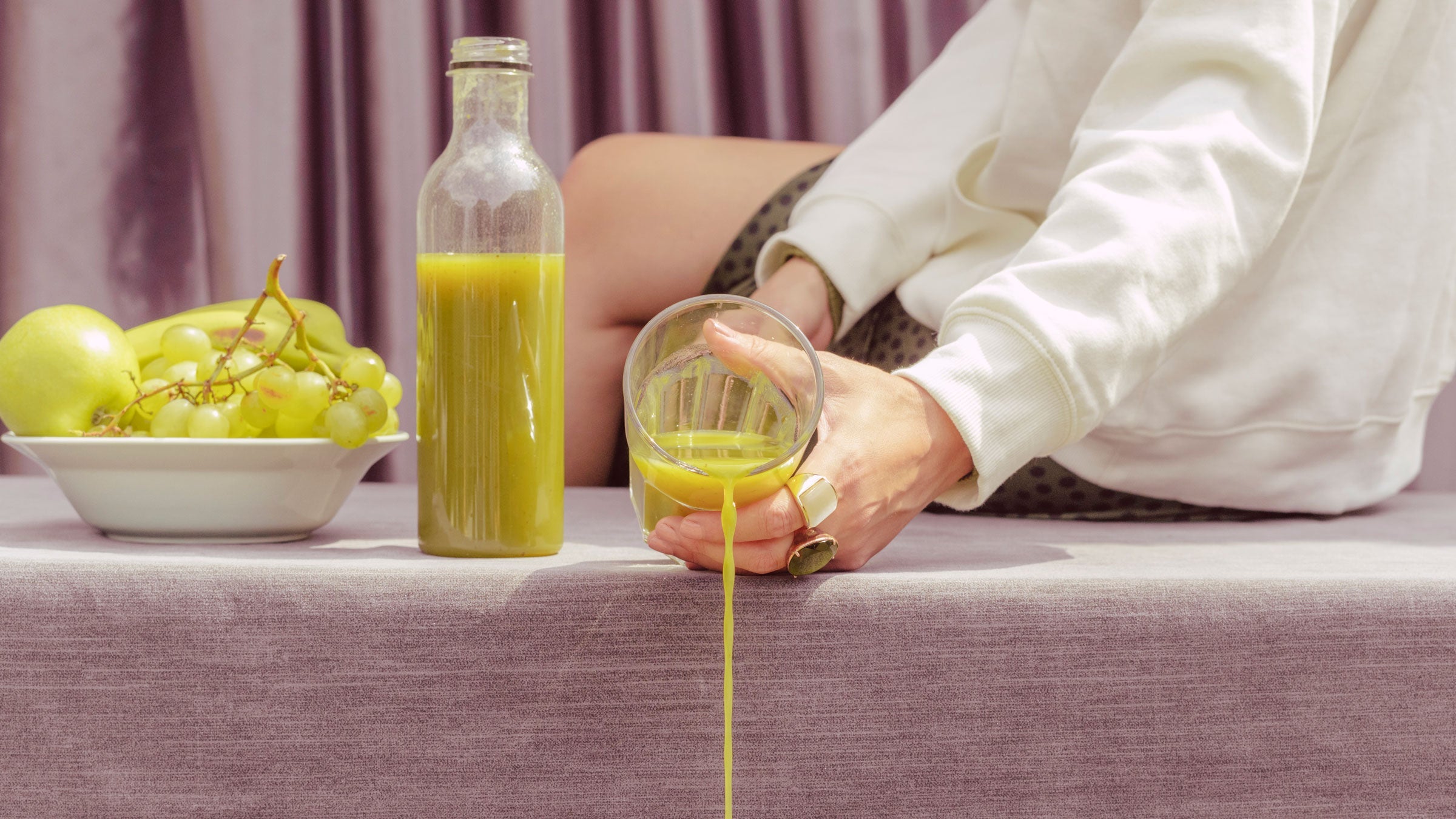A Former Goop Employee Says What We’re All Thinking About Juice Cleanses

(Photo: Getty Images)
You never forget your first juice cleanse. During my first (and last) one, I endured three green drinks before my brain hurt, my body hated me, and I was just miserable. I quit — and immediately ordered a sandwich. Since then, I’ve become a sceptic of liquid-only cleanses. And I’m not the only one.
Elise Loehnen, the former chief content officer of Goop, explained in a recent Instagram video, why she swore off cleansing when she left her job at the lifestyle brand. “To me, [juice cleansing] had become synonymous with dieting and restriction, and I felt like I was not in a healthy relationship with my body, where I was always trying to punish it [and] bring it under control,” she says in the video. She says she recently tried a new approach: participating in a five-day cleanse but allowing herself to eat beyond what’s prescribed by the program.
Are juice cleanses healthy?
The science is just not there. The National Center for Complementary and Integrative Health (NCCIH) points to a 2015 review that found no evidence that cleanses aid in “weight management or eliminating toxins from the body.” The NCCIH also highlights the risks associated with these practices that promise to detox the body: kidney problems, diarrhea, and dangerous electrolyte imbalances. The NCCIH notes the U.S. Food and Drug Administration and the Federal Trade Commission have even taken legal action against juice companies that make health claims with little to no scientific evidence to back them up.
Why can cleanses be harmful?
Sumner Brooks, a registered dietitian, says cleanses promise a quick fix — without taking into account the dietary needs of an individual. “They’re claiming to create some pretty significant health benefits without individualizing anything to anyone, knowing anybody’s risks, knowing anybody’s nutrition needs, and not disclosing the real risks associated with it,” she says. The lack of individualization (and scientific support) is problematic.
For example, she says people who have disordered eating are more vulnerable to worsened symptoms while they’re cleansing. Additionally, if someone is sensitive to blood sugar fluctuations or is on a particular type of medication, they could potentially experience dangerous side-effects from a juice cleanse.
What is intuitive eating?
In the video, Loehnen mentions trying to be in better communication with her body. The concept of tuning into your body’s needs and cues is one of the core tenets of intuitive eating. This approach to food offers a stark departure from the messages around diet culture and “cleanse culture.” Instead of restricting and prohibiting your body from enjoying particular foods, you learn to listen to your body’s cues and signals around hunger and the desire for food.
“It’s actually paying closer attention to how food makes you feel, to how it feels to allow yourself to have permission to eat, to be present with your food, tasting your food, enjoying your food [and] noticing when you start to feel satisfaction and fullness,” Sumner says. For most of us, that doesn’t mean subsisting on juice for days at a time.
OK, I’m interested in learning how to eat clean without cleansing. Where do I start?
If you’re looking to clean up your diet without the cleanses, these are some of Sumner’s recommendations.
- Read up. She recommends reading Intuitive Eating: A Revolutionary Anti-Diet Approach, which covers the basics of the approach. For continued support, you can buy intuitive eating workbooks, which can help frame your thinking around intuitive eating.
- Ditch diet mentality. Learning to eat intuitively is a process, Sumner says. It’s about more than what you do (or don’t) put into your body. The mental shift can be challenging after years (or decades) of dieting.
- Tune into your body. Unlike diet culture, which focuses on following a program, intuitive eating asks you learn to trust your body, Sumner says. Most often it will tell you what it needs — including when it wants a little juice.
RELATED: Hongos Forever: Modern Vegan-Mexican Cuisine Chefs ‘Reawaken the Ancestral Memory’ with Mushrooms
Get more of what you love from VT. Follow us on Instagram, Facebook, and Twitter and sign up for our email newsletters.